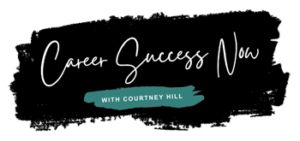I. Introduction
Navigating the complex landscape of career development and job searching can be challenging. Two key professionals who can assist in this journey are career coaches and recruiters. While both play essential roles in helping individuals achieve their career goals, their functions, approaches, and outcomes differ significantly. Understanding these differences is crucial for making informed decisions about your career advancement.
A. Definition of Career Coach
A career coach is a professional who provides personalized guidance to individuals seeking to advance their careers. They work with clients to identify their strengths, weaknesses, interests, and values, helping them set and achieve realistic career goals. Career coaches offer a wide range of services, including skill assessment, career planning, resume building, job search strategies, interview preparation, and support in achieving work-life balance.
B. Definition of Recruiter
A recruiter, on the other hand, is primarily focused on filling job vacancies for employers. Recruiters work on behalf of companies to find suitable candidates for specific job openings. Their primary responsibilities include sourcing and screening candidates, coordinating interviews, and facilitating the hiring process. Recruiters possess in-depth knowledge of the job market and industry trends, which they use to match candidates with appropriate job opportunities.
C. Importance of Understanding the Differences
Knowing the distinctions between career coaches and recruiters is vital for anyone looking to progress in their career. Choosing the right professional can significantly impact your career trajectory, whether you’re seeking immediate employment or long-term career development. This article aims to provide a comprehensive comparison of career coaches and recruiters, helping you make an informed decision about which professional to engage based on your career needs.
II. Role and Responsibilities
A. Career Coach
Career coaches offer a holistic approach to career development. Their primary focus is on the individual’s long-term career growth and satisfaction.
1. Personalized Career Guidance
Career coaches provide tailored advice and strategies to help clients achieve their career goals. They work closely with individuals to understand their unique skills, aspirations, and challenges, offering customized support and guidance.
2. Skill Assessment and Development
Using various assessment tools, career coaches help clients identify their strengths and areas for improvement. They then create personalized development plans to enhance these skills, ensuring clients are well-prepared for their desired roles.
3. Goal Setting and Strategic Planning
Career coaches assist clients in setting realistic and achievable career goals. They help outline a strategic plan that includes short-term and long-term objectives, action steps, and timelines to track progress.
4. Job Search Strategies and Resume Building
Career coaches offer expert advice on effective job search strategies, including networking, online job applications, and leveraging social media. They also help clients create compelling resumes and cover letters tailored to specific job opportunities.
5. Interview Preparation and Coaching
Preparing for interviews is a critical aspect of job searching. Career coaches provide mock interviews, feedback, and tips on how to handle various interview scenarios, helping clients build confidence and improve their performance.
6. Work-life Balance and Career Satisfaction
Beyond job placement, career coaches emphasize the importance of work-life balance and overall career satisfaction. They offer strategies to manage stress, improve time management, and achieve a fulfilling career.
B. Recruiter
Recruiters are more transaction-focused, working to match candidates with job openings on behalf of employers.
1. Job Matching and Placement
Recruiters aim to fill job vacancies by finding suitable candidates for specific roles. They match candidates’ qualifications and experiences with the requirements of the job openings they are trying to fill.
2. Candidate Sourcing and Screening
Recruiters use various methods to source potential candidates, including job boards, social media, and professional networks. They screen candidates through resume reviews and preliminary interviews to ensure they meet the job criteria.
3. Interview Coordination
Once suitable candidates are identified, recruiters coordinate the interview process between the employer and the candidate. This includes scheduling interviews, providing feedback, and facilitating communication.
4. Employer Representation
Recruiters act as intermediaries between candidates and employers. They represent the employer’s interests and ensure that candidates understand the job requirements, company culture, and expectations.
5. Negotiating Job Offers
Recruiters assist in the negotiation process, helping both the employer and candidate reach a mutually beneficial agreement on salary, benefits, and other employment terms.
6. Industry and Market Knowledge
Recruiters possess extensive knowledge of the job market and industry trends. They use this information to advise employers on hiring strategies and candidates on job opportunities.
III. Services Provided
A. Career Coach
Career coaches offer a range of services designed to support individuals throughout their career development journey.
1. One-on-one Coaching Sessions
Personalized coaching sessions are the cornerstone of a career coach’s services. These sessions focus on the client’s specific needs and goals, providing tailored advice and strategies.
2. Workshops and Seminars
Career coaches often conduct workshops and seminars on various career development topics, such as resume writing, job search strategies, and interview skills. These group sessions provide valuable insights and practical tips.
3. Career Development Programs
Some career coaches offer structured career development programs that cover a comprehensive range of topics, from self-assessment to career planning and job search strategies. These programs are designed to provide a holistic approach to career development.
4. Networking Strategies
Building a professional network is crucial for career advancement. Career coaches offer strategies and tips for effective networking, both online and offline, helping clients expand their professional connections.
5. Continuous Support and Feedback
Career development is an ongoing process. Career coaches provide continuous support and feedback, helping clients stay on track with their goals and adapt to changing circumstances.
B. Recruiter
Recruiters provide services that facilitate the job placement process for both employers and candidates.
1. Access to Job Listings
Recruiters have access to a wide range of job listings, including positions that may not be advertised publicly. They connect candidates with these opportunities, increasing their chances of finding suitable roles.
2. Resume Forwarding and Job Applications
Recruiters forward candidates’ resumes to employers and help manage the job application process. They ensure that candidates’ applications are seen by hiring managers, improving their chances of getting noticed.
3. Direct Contact with Hiring Managers
Recruiters often have direct relationships with hiring managers, providing candidates with a direct line of communication to potential employers. This can expedite the hiring process and increase the likelihood of securing an interview.
4. Industry-specific Opportunities
Many recruiters specialize in specific industries, giving them deep insights into industry-specific job opportunities and requirements. They can match candidates with roles that align with their experience and skills.
5. Temporary and Permanent Placements
Recruiters help candidates find both temporary and permanent positions, catering to various employment needs and preferences. They assist in securing short-term contracts, temporary assignments, and long-term employment.
IV. Interaction with Clients
A. Career Coach
Career coaches typically develop a deep, long-term relationship with their clients, focusing on personalized support and guidance.
1. Client-centric Approach
Career coaches adopt a client-centric approach, prioritizing the individual’s needs, goals, and preferences. They tailor their services to provide the most relevant and effective support.
2. Long-term Relationship
The relationship between a career coach and client often extends over a long period. This allows for ongoing support, continuous feedback, and adjustments to career plans as needed.
3. Confidential and Supportive Environment
Career coaches create a confidential and supportive environment where clients can openly discuss their career challenges and aspirations. This safe space fosters honest communication and effective coaching.
B. Recruiter
Recruiters tend to have a more transactional relationship with candidates, focusing on immediate job placements.
1. Employer-centric Approach
Recruiters primarily work to fulfill the needs of employers. Their services are designed to match candidates with job openings that meet the employer’s requirements.
2. Transactional Relationship
The relationship between a recruiter and a candidate is often transactional, centered around finding a suitable job match. Once a placement is made, the relationship may not continue.
3. Focus on Immediate Job Placement
Recruiters focus on the immediate goal of placing candidates in available job openings. While they provide support during the job search process, their involvement typically ends once the placement is made.
V. Goals and Objectives
A. Career Coach
The primary goals of a career coach revolve around the long-term career growth and personal development of their clients.
1. Long-term Career Growth
Career coaches help clients develop and implement strategies for long-term career growth. They focus on building skills, expanding opportunities, and achieving sustained career success.
2. Personal and Professional Development
Career coaches emphasize holistic development, addressing both personal and professional growth. They help clients improve their self-awareness, confidence, and overall career satisfaction.
3. Achieving Career Satisfaction and Fulfillment
Ultimately, career coaches aim to help clients achieve career satisfaction and fulfillment. This involves aligning career choices with personal values, interests, and life goals.
B. Recruiter
Recruiters have more immediate, employer-focused objectives.
1. Filling Job Vacancies
The primary goal of a recruiter is to fill job vacancies quickly and efficiently. They work to match the right candidates with the right job openings to meet employer needs.
2. Matching Candidates with Job Requirements
Recruiters focus on ensuring that candidates meet the specific requirements of the job openings they are trying to fill. This includes matching qualifications, skills, and experience with job descriptions.
3. Meeting Employer Needs and Expectations
Recruiters aim to meet the needs and expectations of employers by providing high-quality candidates who are well-suited for the roles available. This helps build and maintain strong relationships with employers.
VI. Skills and Expertise
A. Career Coach
Career coaches possess a range of skills and expertise that enable them to provide effective guidance and support to their clients.
1. Counseling and Mentoring Skills
Career coaches have strong counseling and mentoring skills, allowing them to provide personalized guidance and support. They help clients navigate career challenges and make informed decisions.
2. Knowledge of Career Development Theories
Career coaches are well-versed in career development theories and best practices. They use this knowledge to help clients set and achieve their career goals.
3. Communication and Interpersonal Skills
Effective communication and interpersonal skills are essential for career coaches. They need to build rapport with clients, listen actively, and provide constructive feedback.
4. Coaching Certifications and Qualifications
Many career coaches hold certifications and qualifications from recognized coaching organizations. These credentials demonstrate their expertise and commitment to professional development.
B. Recruiter
Recruiters possess specialized skills and expertise that enable them to effectively match candidates with job openings.
1. Talent Identification and Assessment Skills
Recruiters have strong talent identification and assessment skills, allowing them to evaluate candidates’ qualifications and fit for specific roles. They use various tools and techniques to assess candidates’ skills and experiences.
2. Industry-specific Knowledge
Recruiters often specialize in specific industries, giving them deep insights into industry trends, job requirements, and employer expectations. This knowledge helps them match candidates with suitable job opportunities.
3. Negotiation and Sales Skills
Recruiters need strong negotiation and sales skills to effectively represent both candidates and employers. They negotiate job offers, salary packages, and employment terms to reach mutually beneficial agreements.
4. Recruitment Certifications and Qualifications
Many recruiters hold certifications and qualifications from professional recruitment organizations. These credentials demonstrate their expertise and adherence to industry standards and best practices.
VII. Pros and Cons
A. Career Coach
1. Pros
a. Personalized Attention
Career coaches provide personalized attention, tailoring their services to meet the unique needs and goals of each client. This individualized approach ensures that clients receive relevant and effective support.
b. Holistic Career Support
Career coaches offer holistic career support, addressing both personal and professional development. They help clients achieve long-term career growth and satisfaction.
c. Long-term Benefits
The benefits of working with a career coach extend beyond immediate job placement. Clients gain valuable skills, strategies, and insights that support their ongoing career development.
2. Cons
a. Cost Considerations
Hiring a career coach can be expensive. Clients need to consider the cost of coaching sessions and programs, which may be a barrier for some individuals.
b. Time Commitment
Working with a career coach requires a significant time commitment. Clients need to invest time in coaching sessions, assignments, and self-reflection to achieve their career goals.
B. Recruiter
1. Pros
a. Direct Access to Job Opportunities
Recruiters have direct access to a wide range of job opportunities, including positions that may not be advertised publicly. This increases candidates’ chances of finding suitable roles.
b. Free Service for Job Seekers
Recruiters typically do not charge job seekers for their services. This makes working with a recruiter an accessible option for individuals seeking employment.
c. Industry Connections
Recruiters have extensive connections within specific industries, providing candidates with valuable networking opportunities and insights into job market trends.
2. Cons
a. Employer-focused
Recruiters primarily work to fulfill the needs of employers, which may limit their ability to provide personalized support to candidates. Their main goal is to fill job vacancies rather than support individual career development.
b. Potentially Less Personalized Support
Due to their focus on meeting employer needs, recruiters may provide less personalized support compared to career coaches. Candidates may not receive the same level of individualized guidance and attention.
c. Short-term Focus
Recruiters are often focused on immediate job placements, which may not align with candidates’ long-term career goals. This short-term focus can limit the benefits of working with a recruiter.
VIII. Choosing the Right Professional
A. Assessing Individual Career Needs
To choose the right professional, individuals need to assess their career needs and goals. This involves considering whether they are seeking immediate employment or long-term career development.
1. Immediate Job Search vs. Long-term Development
If the primary goal is to find a job quickly, working with a recruiter may be the best option. Recruiters can provide access to job openings and facilitate the hiring process. However, if the focus is on long-term career development and personal growth, a career coach may be more suitable.
2. Desired Level of Support and Guidance
Individuals need to consider the level of support and guidance they require. Career coaches offer personalized and holistic support, while recruiters provide more transactional services focused on job placement.
B. Researching Credentials and Experience
When choosing a career coach or recruiter, it is important to research their credentials and experience. This helps ensure that they have the necessary skills and expertise to provide effective support.
1. Checking Certifications and Qualifications
Verify the certifications and qualifications of potential career coaches and recruiters. Look for credentials from recognized professional organizations that demonstrate their expertise and commitment to best practices.
2. Reading Reviews and Testimonials
Reading reviews and testimonials from previous clients can provide valuable insights into the effectiveness and reliability of career coaches and recruiters. Look for feedback on their services, approach, and outcomes.
C. Aligning with Career Goals
Choosing the right professional also involves aligning their services with your career goals. Consider how their approach and expertise match your aspirations and needs.
1. Understanding Personal Career Aspirations
Reflect on your personal career aspirations and what you hope to achieve. This will help you determine whether a career coach or recruiter is best suited to support your goals.
2. Matching with the Professional’s Expertise
Evaluate the expertise of potential career coaches and recruiters to ensure they have the relevant skills and knowledge to help you achieve your career goals. Look for professionals with experience in your industry or specific career challenges.
IX. Case Studies and Examples
A. Career Coach Success Stories
1. Example 1: Long-term Career Growth
John, a mid-level manager, was feeling stuck in his career and unsure about his next steps. He decided to work with a career coach who helped him identify his strengths, set long-term career goals, and develop a strategic plan. Over the next two years, John received promotions, expanded his skill set, and achieved greater job satisfaction.
2. Example 2: Successful Career Transition
Maria, an experienced teacher, wanted to transition into a corporate training role. Her career coach provided guidance on transferable skills, helped her create a targeted resume, and coached her through the interview process. Within six months, Maria successfully transitioned to a new role that aligned with her career aspirations.
B. Recruiter Success Stories
1. Example 1: Quick Job Placement
David, a recent college graduate, was struggling to find a job in a competitive market. He connected with a recruiter who specialized in his field. The recruiter provided valuable job leads, helped him refine his resume, and coordinated interviews. Within a few weeks, David secured a job offer and started his new role.
2. Example 2: Finding the Perfect Job Match
Linda, a seasoned marketing professional, was looking for a new opportunity that aligned with her skills and career goals. She worked with a recruiter who had deep industry connections. The recruiter matched her with a position that perfectly suited her experience and aspirations, leading to a successful and fulfilling job placement.
X. Conclusion
A. Summary of Key Differences
Understanding the key differences between career coaches and recruiters is essential for making informed decisions about your career development. Career coaches offer personalized, long-term support focused on holistic career growth, while recruiters provide immediate job placement services that meet employer needs.
B. Importance of Making an Informed Choice
Choosing the right professional can significantly impact your career success and satisfaction. By assessing your individual career needs, researching credentials, and aligning with your goals, you can make an informed choice that supports your career aspirations.
C. Final Thoughts on Career Development
Career development is an ongoing journey that requires continuous learning and adaptation. Whether you choose to work with a career coach, a recruiter, or both, seeking the right support is crucial for achieving your career goals and realizing your full potential. By taking proactive steps and leveraging the expertise of career professionals, you can navigate the complexities of the job market and build a fulfilling and successful career.



